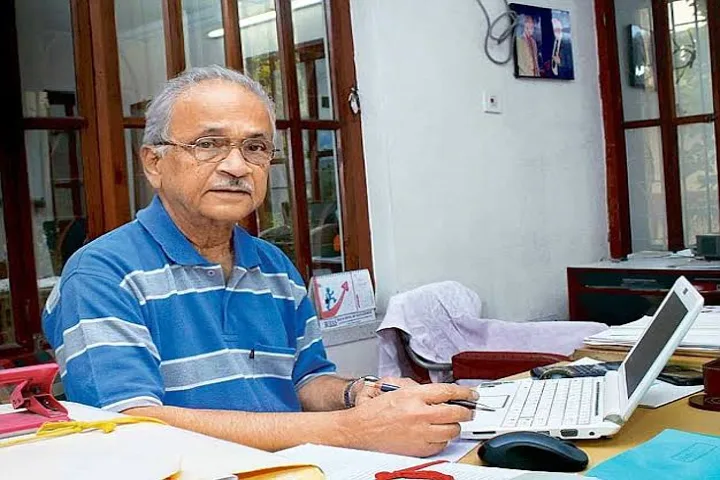

Dr. Dilip Mahalanabis who pioneered use of oral rehydration therapy to treat cholera passed away (Pic. Courtesy Twitter/@Subhajit195378)
India today lost a well-known personality of the medical fraternity, Dr. Dilip Mahalanabis, who was the pioneer of oral rehydration therapy. In ORT oral rehydration solution which has sugar and electrolyte is given to treat dehydration and it was developed to treat diarrheal diseases.
He was 88 and passed away in Kolkata’s private hospital.
Mahalanabis who was a well-known paediatrician started the use of ORT during an historic period of Indian history – during the 1971 Bangladesh Liberation War when cholera broke out among the refugees.
Born in 1934 in Kishoreganj located in Bangladesh now, he graduated in 1958 from the Calcutta Medical College where he joined as an intern in the hospital’s paediatric department. He studied medicine in England and acquired two degrees in London and Edinburgh.
Interestingly, he was the first Indian to be selected as registrar of London’s Queen Elizabeth Hospital for Children. At the Johns Hopkins International Center for Medical Research and Training that was set up at the Beliaghata Infectious Diseases Hospital in Kolkata, he studied cholera and other diarrhoeal diseases.
During the 1971 war he went to a refugee camp in Bongaon district located near the India-Bangladesh border and demonstrated how ordinary people can use ORS solution to tackle cholera.
In a World Health Organisation bulletin of 2009 he recalled his 1971 experience. He said: “There were many deaths from cholera, many horror stories. When I arrived, I was really taken aback. There were two rooms in the hospital in Bangaon that were filled with severely ill cholera patients lying on the floor. In order to treat these people with IV saline, you literally had to kneel down in their faeces and their vomit. Within 48 hours of arriving there, I realized we were losing the battle because there was not enough IV saline and only two members of my team were trained to give the fluids.”
He added: “I didn’t have the privilege of consulting knowledgeable people at that time. I had to decide on my own what to do. I had no choice but to go ahead and use ORS to the maximum, hoping for the best. I was confident that it could work, but not necessarily in these circumstances. I also feared that if it didn’t work, we would have no more options. It was a huge relief when we saw that it really did work.”
Dr. Mahalanabis worked between 1975 and 1979 in WHO’s cholera control units in Egypt, Yemen and Afghanistan. In the 1980s, he became a WHO consultant on management of bacterial diseases.
Australia's High Commissioner to India, Philip Green OAM, called Yoga one of India's gifts to…
The Bharat Sanchar Nigam Limited (BSNL) has announced the soft launch of BSNL Quantum 5G…
The Indian Embassy in Iran has said that the embassy will make efforts to evacuate…
India's gross direct tax collections for the financial year 2025-26 rose by 4.86 per cent…
Russian President Vladimir Putin has said that Moscow is not seeking Ukraine's unconditional surrender, but…
Extending his greetings on the 11th International Day of Yoga, Lok Sabha speaker Om Birla…